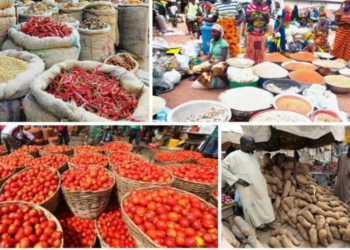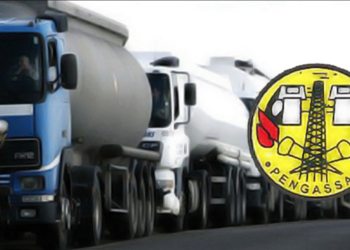Article Summary
- PENGASSAN President has said that oil and gas revenue can no longer sustain Nigeria.
- The numbers agree with his assertion, as Nigeria’s crude production continues to decline according to the latest reports.
- Angola is now the top crude oil producer in Africa as of April 2023.
The President of the Petroleum and Natural Gas Senior Staff Association of Nigeria (PENGASSAN), Festus Osifoh, has said that oil and gas revenues can no longer sustain Nigeria as a country. He said this during the opening of the 7th Triennial Delegates Conference, which commenced in Abuja, on Thursday, May 11.
According to a report from ThisDay, Mr. Osifoh said it is time for stakeholders to realize this fact and take action to sustain the country. He also called on the new administration to be sworn in by May 29, to work towards the completion of the ongoing rehabilitation of Nigeria’s petroleum refineries (Kaduna, Warri and Port Harcourt) and to adopt the Nigeria Liquefied Natural Gas (NLNG) Limited model in the running of the four refineries once they are completed. He said:
- “The hard truth is that revenue from the oil and gas sector can no longer sustain us as a nation, and this is the most auspicious time to walk our talk. We commend the ongoing efforts of government in the agricultural sector and expect the tempo to be sustained in the entire value chain and replicate the same in other areas like solid minerals, tourism, and technology.”
Is Osifoh right in his assertion?
In its Gross Domestic Product (GDP) report for the third quarter of 2022, the National Bureau of Statistics (NBS) stated that the oil sector contributed 5.66% to the country’s total real gross domestic product (GDP) in Q3 2022.
This is because Nigeria recorded an average daily oil production of 1.20 million barrels per day (mbpd) in Q3 2022.
This figure is lower than the daily average production of 1.57 mbpd recorded in the same quarter of 2021 by 0.37 mbpd and lower than the Q2/2022 production volume of 1.43 mbpd by 0.24 mbpd.
Also, Nairametrics reported in April 2023, that Nigeria recorded an annual inflation rate of 18.85% in 2022, galloping from 16.95% and 13.25% recorded in 2021 and 2020, respectively, largely due to a surge in food and energy prices.
These energy prices rose to record highs, significantly impacting the operating costs of oil and gas companies like Conoil, Seplat, MRS Oil, Ardova Plc, and TotallEnergies.
Today, the story of falling oil and gas profits is the same. According to data from the Nigerian Upstream Petroleum Regulatory Commission (NUPRC), Nigeria produced only 998,602 barrels per day of crude oil (aside from condensate production) in April 2023.
Earlier this year, some oil and gas analysts who spoke to Nairametrics said that the current level of upstream investments in Nigeria’s oil and gas sector was too low and could not increase revenues.
They also said things could get worse if the country does not focus on increasing investments and tackling challenges like crude oil theft and multilevel losses.
What you should know
Angola has overtaken Nigeria to emerge top African oil producer in April 2023, according to the monthly oil market report by the Organization of Petroleum Exporting Countries (OPEC).


























